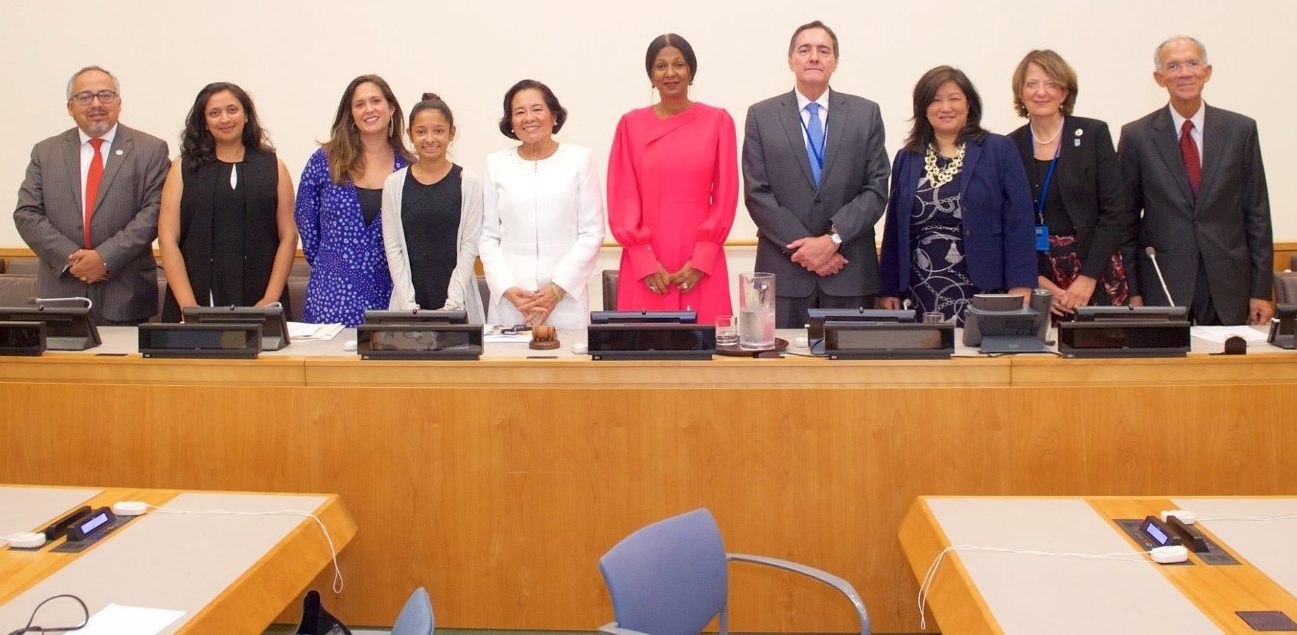
SCLAN advocates for access to health by Adolescents, Children and Women at 74th UNGA
In September 2019, the Spouses of CARICOM Leaders Action Network (SCLAN) hosted two side events during the 74th Session of the United Nations General Assembly (UNGA) in New York.
“Ensuring Access and Equity in Adolescents, Children and Women’s Health” was attended by First Ladies as well as other guests who support innovative initiatives to ensure access and equity to health at country and global levels by adolescents, children and women.

Image: Ms Kim Simplis Barrow, First Lady of Belize and Ms Sandra Granger, First Lady of Guyana with other members of the panel
At the second event, SCLAN collaborated with New York University’s College of Global Health and HealthRight International in a panel discussion on the theme, “No health without mental health: Time to act and invest in adolescents.”
The goal was to highlight the current status of global mental adolescent health, best practices/innovations and the need for harmonised donor investment.

Image: Ms Kim Simplis Barrow, First Lady of Belize and Ms Sandra Granger, First Lady of Guyana with guests from the New York University’s College of Global Health and HealthRight International
For more information contact info@sclan.org
WHAT IS PANCAP?
PANCAP is a Caribbean regional partnership of governments, regional civil society organisations, regional institutions and organisations, bilateral and multilateral agencies and contributing donor partners established on 14 February 2001. PANCAP provides a structured and unified approach to the Caribbean’s response to the HIV epidemic, and coordinates the response through the Caribbean Regional Strategic Framework on HIV and AIDS to maximise efficient use of resources and increase impact, mobilise resources and build the capacity of partners.
What are the Global AIDS Strategy 2021–2026 targets and commitments?
If targets and commitments in the strategy are achieved:
- The number of people who newly acquire HIV will decrease from 1.7 million in 2019 to less than 370 000 by 2025
- The number of people dying from AIDS-related illnesses will decrease from 690 000 in 2019 to less than 250 000 in 2025.
- The goal of eliminating new HIV infections among children will see the number of new HIV infections drop from 150,000 in 2019 to less than 22,000 in 2025.
What are the 95-95-95 Targets for ending AIDS?
- 95% of People Living with HIV know their HIV status;
- 95% of people who know their status on treatment; and
- 95% of people on treatment with suppressed viral loads.
HELPFUL LINKS:
Global AIDS Strategy 2021–2026, End Inequalities, End AIDS
https://pancap.org/pancap-documents/global-aids-strategy-2021-2026-end-inequalities-end-aids/
Caribbean Regional Strategic Framework on HIV and AIDS (CRSF) 2019-2025
https://pancap.org/pancap-documents/caribbean-regional-strategic-framework-2019-2025/
